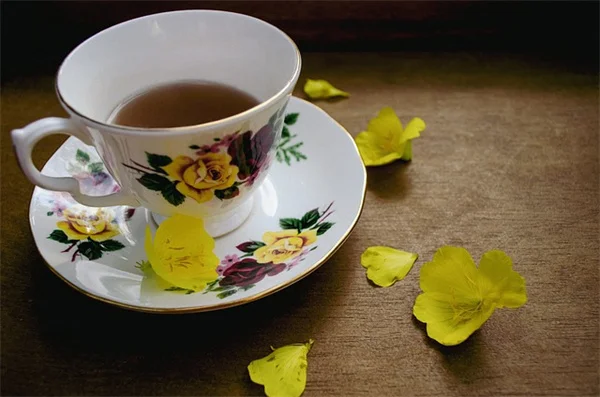Is this year's flu season worse than usual? The answer is yes - we're seeing one of the strongest flu seasons since COVID began! While cases dropped after December's peak, current flu activity remains alarmingly high nationwide, with about 79,000 flu-related ER visits recently. I've been tracking CDC data for years, and here's what you need to know: we're not out of the woods yet. February is typically flu season's peak month, and experts like Dr. William Schaffner warn we could see cases continue through mid-March. The good news? There are simple steps you can take to protect yourself and your family during this extended flu season.
E.g. :Intermittent Fasting vs Calorie Restriction: Which Works Better for Weight Loss?
- 1、Is This Flu Season Hitting Us Harder Than Usual?
- 2、Where's the Flu Hitting Hardest Right Now?
- 3、Understanding This Year's Flu Strains
- 4、Your Personal Flu Defense Plan
- 5、What's Coming Next in Flu Season?
- 6、The Hidden Costs of Flu Season You Never Considered
- 7、The Emotional Toll We Don't Talk About
- 8、Flu Season's Impact on Healthcare Workers
- 9、Flu Season's Unexpected Winners
- 10、How Different Cultures Handle Flu Season
- 11、FAQs
Is This Flu Season Hitting Us Harder Than Usual?
The Numbers Don't Lie
Let me tell you something - this flu season is playing hardball! While cases dropped after December's peak, we're still seeing way more sick folks than last year at this time. The CDC's latest report shows about 79,000 flu-related ER visits recently - that's like filling a football stadium with sick people!
Here's the kicker: flu activity usually peaks in February, so we might be in for another round. Dr. Winslow from Stanford put it perfectly: "I don't have a crystal ball, but high case numbers through mid-March wouldn't surprise me." Remember last year when flu cases crashed after November? Yeah, that's not happening this time.
How Does This Season Compare?
Check out this comparison table - it tells the whole story:
| Season | Peak Time | Current Case Level |
|---|---|---|
| 2022-2023 | Late November | Low (post-peak) |
| 2023-2024 | Late December | High (plateau) |
See what I mean? We're dealing with one of the strongest flu seasons since COVID hit. And here's something wild - the current dominant strain (H1N1) is related to the infamous 1918 Spanish Flu! But don't panic - modern medicine has come a long way since then.
Where's the Flu Hitting Hardest Right Now?
 Photos provided by pixabay
Photos provided by pixabay
The Southern States Are Getting Slammed
If you're in Texas, Louisiana, or South Carolina - listen up! Your states are in the red zone for flu activity. Meanwhile, our friends out West in Colorado and Oregon are catching a break with moderate to low levels. Isn't it crazy how geography affects flu patterns?
The CDC tracks this stuff using multiple indicators. Right now, about 15.8% of flu tests are coming back positive - that's 15,000 positive cases out of 96,000 tests. And get this - 4.4% of all doctor visits are for flu-like symptoms (fever plus cough/sore throat). That's like 1 in every 23 people walking into clinics!
Is the Flu Still Dangerous?
Here's some good news - flu deaths are dropping (222 last week vs. 490 the week before). But wait - does that mean we can relax? Absolutely not! Even with the decline, we're still way above normal seasonal levels. Dr. Schaffner says it best: "We're not out of the woods yet."
Think about it this way - would you stop watching for cars just because traffic lightened up a bit? Same principle applies here. Stay vigilant, folks!
Understanding This Year's Flu Strains
Meet the Viral Culprits
Let me introduce you to this season's troublemakers. We've got mostly Influenza A (the usual suspect) with some Influenza B tagging along. Here's a fun fact - Influenza B often shows up fashionably late to the party, becoming more prominent in late winter.
The current star of the show is influenza A(H1N1)pdm09. Sounds technical, right? But you've actually met this guy before - it's related to both the 1918 pandemic and the 2009 swine flu. Before you freak out, remember - today's vaccines and treatments are lightyears ahead of what we had back then.
 Photos provided by pixabay
Photos provided by pixabay
The Southern States Are Getting Slammed
Here's the deal - flu viruses are like that friend who can't stop reinventing themselves. They mutate constantly, which is why we need new vaccines each year. But here's something interesting - this year's dominant strain might explain why we're seeing more cases later in the season, just like in 1918.
Think of it like fashion trends - what was hot last season might not work this year. The flu virus follows similar "trends," just with less style and more sneezing.
Your Personal Flu Defense Plan
Vaccination: Your First Line of Defense
Listen up - getting your flu shot is the single best thing you can do. I don't care how busy you are - this is one appointment worth keeping. High-risk folks (seniors, young kids, pregnant women) especially need this protection.
But here's a question: Why do so many people skip the flu vaccine? Maybe they think "I never get sick" or "The shot makes me feel icky." Let me tell you - feeling a bit off for a day beats being flat on your back for a week!
Smart Habits for Flu Season
Besides vaccination, here's your game plan:
- Wash those hands like you just handled raw chicken
- Avoid packed indoor spaces (think crowded bars or packed subways)
- Keep some distance from coughing coworkers
And here's a pro tip: If you do get sick, stay home! Your coworkers will thank you, and you'll recover faster. Remember - being "tough" and powering through just spreads germs.
What's Coming Next in Flu Season?
 Photos provided by pixabay
Photos provided by pixabay
The Southern States Are Getting Slammed
While cases have plateaued, February could bring another wave. The CDC's indicators suggest we're not done yet. But here's the silver lining - if we all take precautions, we can flatten this curve just like we learned to do with COVID.
Think about it - would you stop watching a movie halfway through because the action slowed down? Of course not! Same goes for flu season - stay tuned until the credits roll in March or April.
Final Thoughts on Staying Healthy
At the end of the day, protecting yourself comes down to common sense. Get vaccinated, practice good hygiene, and listen to your body. And if you do get hit with the flu? Rest up, drink fluids, and don't be a hero - see a doctor if symptoms get serious.
One last thing - share this info with friends and family. The more people who take flu season seriously, the healthier we'll all be. Now go wash your hands - I'll wait!
The Hidden Costs of Flu Season You Never Considered
Your Wallet Takes a Hit Too
Did you know the flu costs Americans over $10 billion annually in direct medical expenses? That's not even counting lost productivity when people call out sick. I once had a coworker who came in sneezing - next thing you know, half our team was down for a week!
Let's break it down: The average flu patient spends about $1,000 between doctor visits, medications, and missed work. For families with multiple sick members, this can mean choosing between groceries and medicine. Prevention isn't just healthier - it's cheaper too.
How Businesses Get Slammed
Small businesses especially feel the pinch. When your 10-person office has 3 people out sick, that's 30% of your workforce gone! Restaurants, schools, and retail stores often see their busiest seasons coincide with flu season - talk about bad timing.
Here's a crazy stat: The service industry loses more money to flu-related absences than any other sector. That latte you didn't get because the barista was home sick? Multiply that by thousands across the country.
The Emotional Toll We Don't Talk About
Parenting Through Flu Season is Brutal
Ever tried working from home with a sick toddler? It's like conducting a business call while wrestling an alligator. Parents lose an average of 8-10 workdays per flu season caring for sick kids - and that's if they're lucky.
The stress isn't just physical. Watching your child suffer through high fevers creates emotional scars. One mom told me, "I'd rather have the flu ten times myself than see my baby go through it once."
Senior Isolation Worsens
For elderly folks, flu season often means being cut off from visitors afraid of getting them sick. Imagine being 85, already lonely, then having your weekly bridge game canceled for months. Social connections suffer when we're all germ-phobic.
Retirement communities become like fortresses during outbreaks. One activity director shared, "We go from bingo nights to lockdowns overnight. The mental health impact is real."
Flu Season's Impact on Healthcare Workers
ERs Become War Zones
Nurses describe flu season shifts as "drinking from a firehose." One ER nurse told me, "We'll have people waiting 8 hours just to get Tamiflu. The beds are full, the halls are full, and we're running on coffee and adrenaline."
Here's something most people don't realize: Healthcare workers get sick at twice the rate of other professions. Yet they still show up - often while fighting their own fevers. That dedication deserves major respect.
The Ripple Effect on Other Patients
When hospitals overflow with flu cases, everyone suffers. I spoke to a cancer patient whose chemo got delayed because all infusion chairs were taken by flu patients. "My tumor doesn't care about flu season," she said bitterly.
Elective surgeries get postponed. Routine checkups are canceled. Even emergency care slows down. One paramedic joked, "During flu season, you better not have your heart attack on a Tuesday afternoon."
Flu Season's Unexpected Winners
Who Actually Benefits?
While most of us suffer, some industries thrive. Telemedicine companies see a 300% increase in visits. Soup sales jump 40%. And let's not forget the tissue industry - Americans buy enough Kleenex during flu season to circle the globe twice!
Here's a fun table showing some surprising beneficiaries:
| Industry | Revenue Increase | Why? |
|---|---|---|
| Streaming Services | 25% | Stuck-at-home viewers |
| Food Delivery | 60% | No one cooks when sick |
| Electric Blankets | 90% | Everyone wants comfort |
The Silver Linings Playbook
Believe it or not, flu season creates some positive changes. Companies finally upgrade sick leave policies. People rediscover the lost art of chicken soup. And let's be honest - who doesn't love an excuse to binge-watch shows guilt-free?
One teacher told me, "My students are suddenly very motivated to wash their hands when I explain how many germs live on doorknobs." Sometimes fear can be educational!
How Different Cultures Handle Flu Season
Global Flu Fighting Techniques
While Americans reach for OTC meds, other cultures have fascinating remedies. In Japan, people wear masks religiously. Mexicans swear by spicy pozole soup. Russians rub vodka on their chests (though doctors don't recommend this one!).
Ever wonder why some countries seem to handle flu season better? It often comes down to cultural norms around sick leave and prevention. In Sweden, staying home at the first sniffle is expected. Meanwhile, Americans power through until they collapse.
The Power of Community Care
Some cultures have beautiful flu season traditions. In Italy, neighbors deliver homemade brodo (healing broth) to sick families. Korean communities organize medicine runs for elderly members. Maybe we could learn from these examples.
One immigrant friend told me, "Back home, when someone got sick, the whole village helped. Here, you're lucky if your roommate leaves you a Gatoride." Food for thought as we navigate this brutal season together.
E.g. :Why the Second Wave of the 1918 Flu Pandemic Was So Deadly ...
FAQs
Q: How bad is this flu season compared to previous years?
A: Let me break it down for you - this is shaping up to be one of the toughest flu seasons we've seen in years. While last year's cases crashed after November, we're currently seeing case numbers way above last year's levels. The CDC reports our current flu activity is maintaining at elevated levels rather than dropping significantly. What makes this particularly concerning is that we're dealing with an H1N1 strain related to the infamous 1918 Spanish Flu (though modern medicine handles it much better now). The bottom line? Don't let your guard down just because we're past December's peak.
Q: Which areas of the US are being hit hardest by flu right now?
A: If you're in the South, listen up! States like Texas, Louisiana, and South Carolina are currently in the red zone for flu activity. Meanwhile, western states from Colorado to Oregon are seeing moderate to low levels. Here's something interesting - this regional variation is completely normal for flu season. The CDC tracks this using multiple indicators, including lab tests (currently 15.8% positive) and doctor visits (4.4% for flu-like symptoms). Wherever you are, remember that flu can spread quickly, so taking precautions is always smart.
Q: Should I still get a flu shot if it's already February?
A: Absolutely yes! I can't stress this enough - it's not too late to get vaccinated. Here's why: flu season typically runs through March or even April in some years. The shot takes about two weeks to become fully effective, so getting it now still gives you solid protection for the remainder of the season. Plus, this year's vaccine is well-matched to the circulating strains. Think of it like wearing a seatbelt - even if you're halfway through your trip, you still want that protection!
Q: What makes this year's flu strain different?
A: Great question! The current dominant strain is influenza A(H1N1)pdm09, which might sound familiar because it's related to both the 1918 pandemic and the 2009 swine flu. Here's what's fascinating - this strain seems to be following a similar late-season pattern as the 1918 flu. While that sounds scary, remember we've got much better vaccines and treatments today. The virus's behavior explains why we're seeing this extended flu season rather than the quick drop-off we saw last year.
Q: What are the best ways to avoid catching the flu right now?
A: Let me give you my top three tips that really work: First, get vaccinated if you haven't already - it's your best defense. Second, wash your hands frequently and avoid touching your face (I know, easier said than done!). Third, be smart about crowded indoor spaces - maybe skip that packed concert or movie theater during peak flu season. And here's a bonus tip: if you do get sick, stay home! Your coworkers will thank you, and you'll recover faster without spreading germs.







